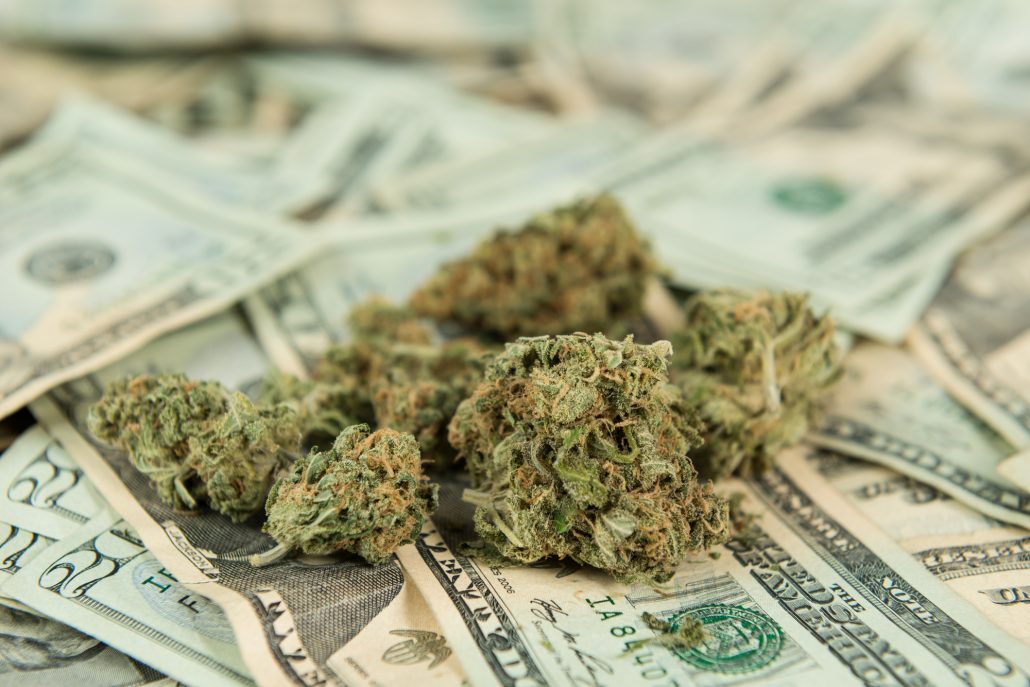
California’s Cannabis Cultivation Tax – It’s How The State Gets Its Cut After The Harvest
On November 8, 2016, California voters approved Proposition 64, Control, Regulate and Tax Adult Use of Marijuana Act. In 2017, to align the requirements for licensing and regulation of medicinal and adult-use of commercial cannabis, Proposition 64 was amended by Senate Bill (SB) 94. Among other changes, SB 94 repealed the Medical Cannabis Regulation and Safety Act (“MCRSA”) and included certain provisions of the MCRSA in the licensing provisions of Proposition 64. The consolidated provisions are now known as the Medicinal and Adult-Use of Cannabis Regulation and Safety Act (“MAUCRSA”), and the term marijuana was changed throughout the law to the term cannabis. Additionally, cannabis distributors must collect the cannabis excise tax from retailers and the cultivation tax from cultivators or manufacturers and report and pay the taxes to the California Department Of Tax And Fee Administration (“CDTFA”).
Effective November 9, 2016, certain sales of medicinal cannabis are exempt from sales and use tax and beginning January 1, 2018, two new cannabis taxes apply – one being a 15% excise tax imposed upon purchasers of cannabis and cannabis products. For this tax retailers of cannabis and cannabis products are required to collect the 15% excise tax from the purchaser based on the average market price of any retail sale and pay it to their cannabis distributor. The other tax is an excise tax imposed at the cultivation level.
Cannabis Cultivation Tax
California charges a cultivation tax which is imposed upon cannabis cultivators on all harvested cannabis that enters the commercial market.
The rate of the cultivation tax is:
- $9.25 per dry-weight ounce of cannabis flowers that enter the commercial market,
- $2.75 per dry-weight ounce of cannabis leaves that enter the commercial market, and
- $1.29 per ounce of fresh cannabis plant (To qualify for the “fresh” plant category, the unprocessed cannabis must be weighed within two hours of harvesting. Immature plants (including clones) and seeds are excluded from the cultivation tax.)
Cannabis cultivators at the time of transferring their product to the next party in the stream of commerce are required to pay the cultivation tax to either their distributor or their manufacturer.
When a manufacturer of cannabis products receives unprocessed cannabis from a cultivator, the manufacturer is required to collect the cultivation tax from the cultivator based on the weight and category of the cannabis.
The manufacturer must provide a receipt to the cultivator that shows the following:
- Your name (licensee receiving the cannabis)
- Name of cultivator, including the unique identifier number of the cannabis
- The amount of the cultivation tax (including weight and category of cannabis)
- The date of sale or transfer
When the manufacturer sells or transfers the manufactured-cannabis product to a licensed distributor, you must pay the cultivation tax collected on the unprocessed cannabis used to make the cannabis products to the distributor. The distributor is then responsible for arranging testing and quality assurance prior to the sale or transfer of the cannabis product to a retailer. The distributor is also responsible for reporting and paying the cultivation tax to the CDTFA.
Impact Where More Than One Manufacturer In The Stream Of Commerce
It is possible that a manufacturing concern that has process cannabis would divide up its refined product and sell it to multiple parties (whether they be other manufacturers or distributors). Where a cannabis manufacturer sells its product to one or more such parties in the stream of commence, that transferor would pass the cultivation tax that it collected from the cultivator on the cannabis it used to manufacture the cannabis product to the next manufacturer(s)/distributor(s).
To illustrate this concept, assume you purchased 90 pounds of cannabis leaves from a cultivator. The cultivation tax is calculated as follows:
90 lbs. x 16 ounces per lb. = 1,440 ounce of leaves
Cultivation tax rate on leaves is $2.75 per ounce
Cultivation tax due (1,440 x $2.75) = $3,960
You collect $3,960 in cultivation tax from the cultivator and provide the cultivator a receipt. You then manufacture cannabis oil from the 90 pounds of cannabis and sell one third of the cannabis oil to three different manufacturers.
When you sell the cannabis oil, you will pass on to each of the three manufacturers $1,320 ($3,960/3) of the cultivation tax you collected. You pass the cultivation tax and the cannabis information (that is, the weight, category, and unique cannabis identifier number) to the next level manufacturers.
You, and each party to the transaction, from the original sale from the cultivator to the final transfer or sale to the distributor, are required to provide a receipt, invoice, manifest, or some form of documentation to the next party in the transaction showing the cultivation tax and the weight and category of the cannabis being passed on from cultivation to when the cannabis enters the commercial market.
This allows the State to come in at any level in the stream of commerce to track the source and flow the cannabis and that all taxes are properly computed and paid.
What Should You Do?
It is enough that cannabis businesses have to deal with the uncertainty of the Federal government in enforcing the Federal law that makes it a crime to possess and sell cannabis. Make sure that your cannabis business is in compliance with California Cannabis Taxes by engaging the tax attorneys at the Law Offices Of Jeffrey B. Kahn, P.C. located in Orange County (Irvine), Inland Empire (Ontario) and other California locations. We can come up with solutions and strategies to these challenges and protect you and your business to maximize your net profits.

 Follow
Follow Follow
Follow
